Do you know how to check your breasts for breast cancer?
These six tips could save your life

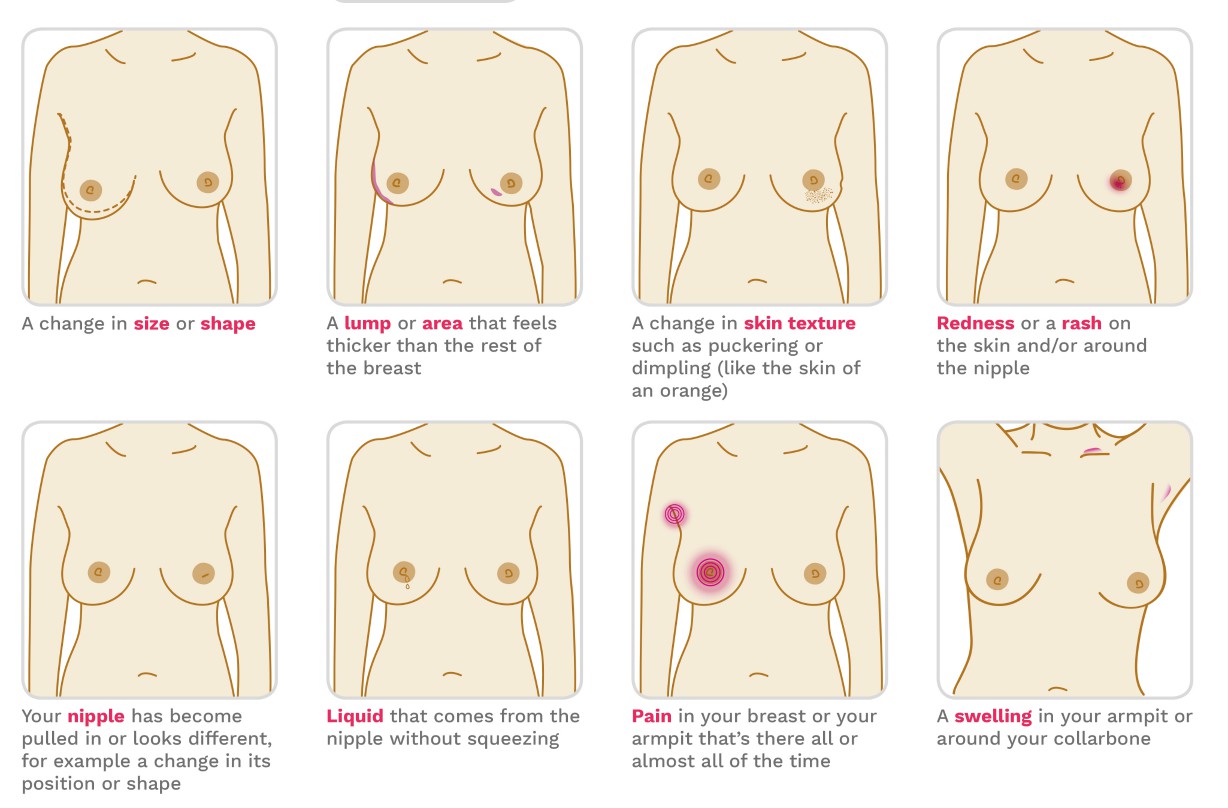
Parenting advice, hot topics, best buys and family finance tips delivered straight to your inbox.
You are now subscribed
Your newsletter sign-up was successful
Two million people in the UK are living with cancer or the aftermath of it, and each year around 55,000 women and 370 men are diagnosed with breast cancer every year in the UK.
October is Breast Cancer Awareness month, but you should be checking your breasts all year round, no matter what your family history, for changes that could be a sign of breast cancer.
70 per cent of breast cancer cases are discovered by women themselves, noticing a change in their breasts, and this is why it is so important to be breast aware, to be confident about how to check your breasts, know the symptoms of breast cancer, what to look for and when to seek help.
This comes as new research from the Breast Size Satisfaction Survey (BSSS) reveals a link between how happy you are with your breast size and you're likelihood to be breast aware - and so able to notice changes that could be indicative of cancer.
Worryingly, according to the survey, just over 70 percent of women worldwide are unhappy with the size of their breasts - with the UK topping the unhappiness scale.
With this in mind and as breast cancer is the most common cancer in UK women, we've worked with Breast Cancer Care to put together five easy ways to check your breasts. Breast cancer may be scary, but the quicker it's found, the more effective the treatments may be, so don't delay in going to your GP if you find something unusual.
Another person in the UK is diagnosed with breast cancer every 10 minutes, so get checking, ladies.
Parenting advice, hot topics, best buys and family finance tips delivered straight to your inbox.
1. Be breast aware
If you aren't already, be more breast aware. The survival rate is far higher for women who find breast cancer in the early stages, as it's easier to treat. Know what's normal for your breasts, like the way they look and feel.
Breast Cancer Now says: 'If you get to know what's normal for you, it's much easier to notice if something isn't right and then it's important to talk to your doctor.'
2. Know what breast changes to look for
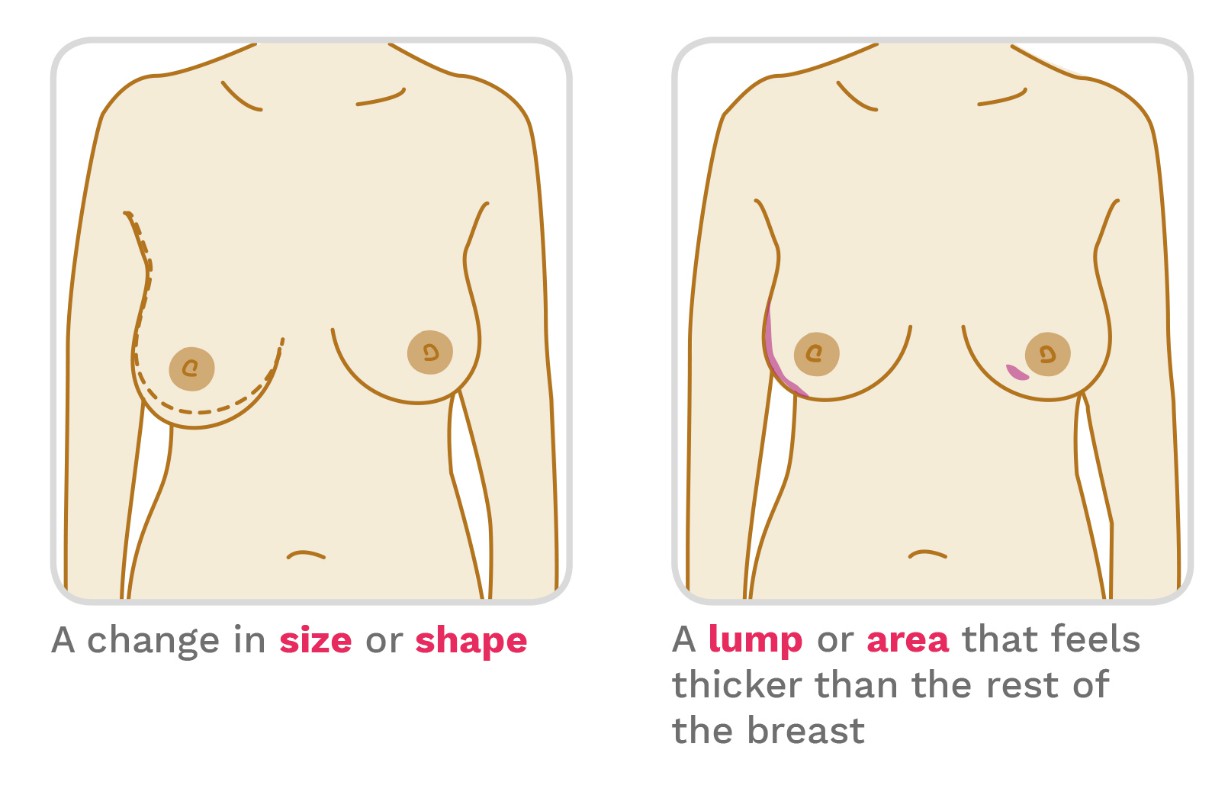
According to Breast Cancer Now: 'Checking your breasts only takes a few minutes. There’s no special technique and you don’t need training to check your breasts.'
Noticing breast cancer isn't just about finding a lump, there are lots of other signs and symptoms that can indicate it.
Breast Cancer Aware advises: 'Check the whole breast area, including your upper chest and armpits.'
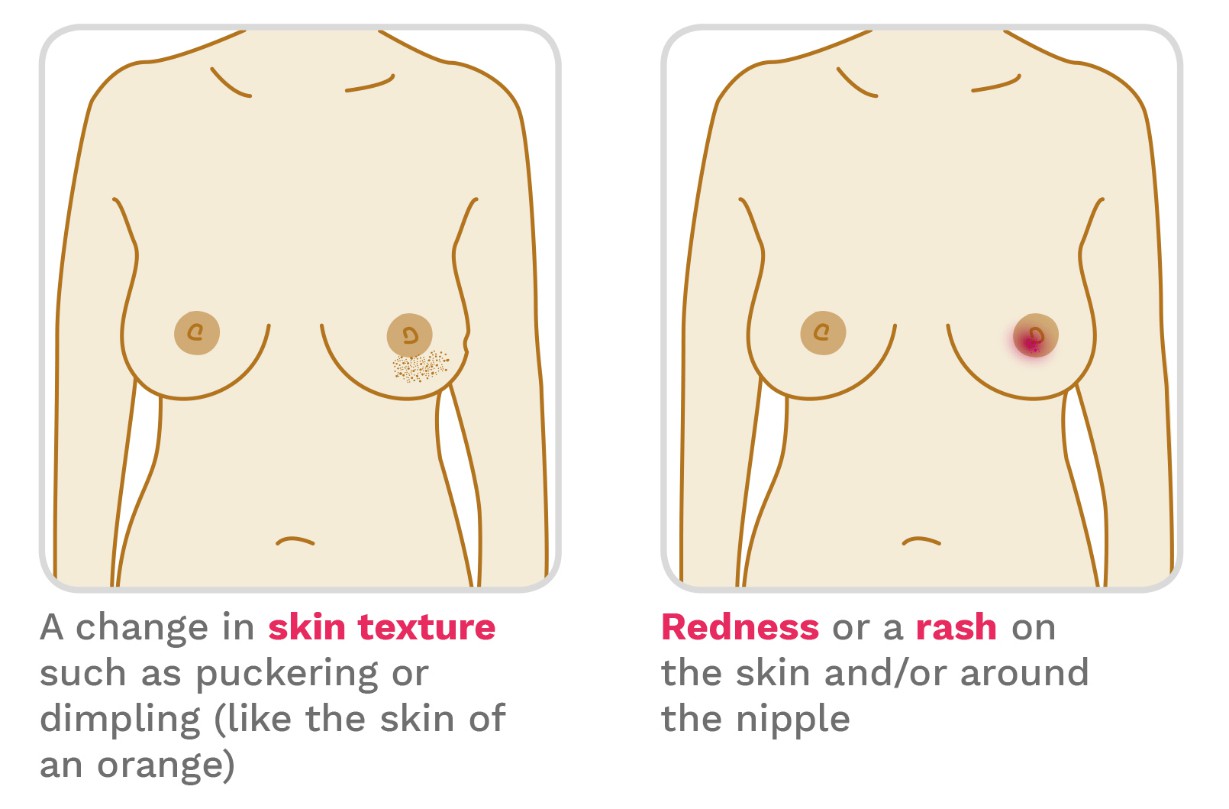
Something as subtle as a change in skin tone on your breast can be an indication. Keep an eye out for any of the changes in the pictures above and below, then speak to your doctor if you're worried.
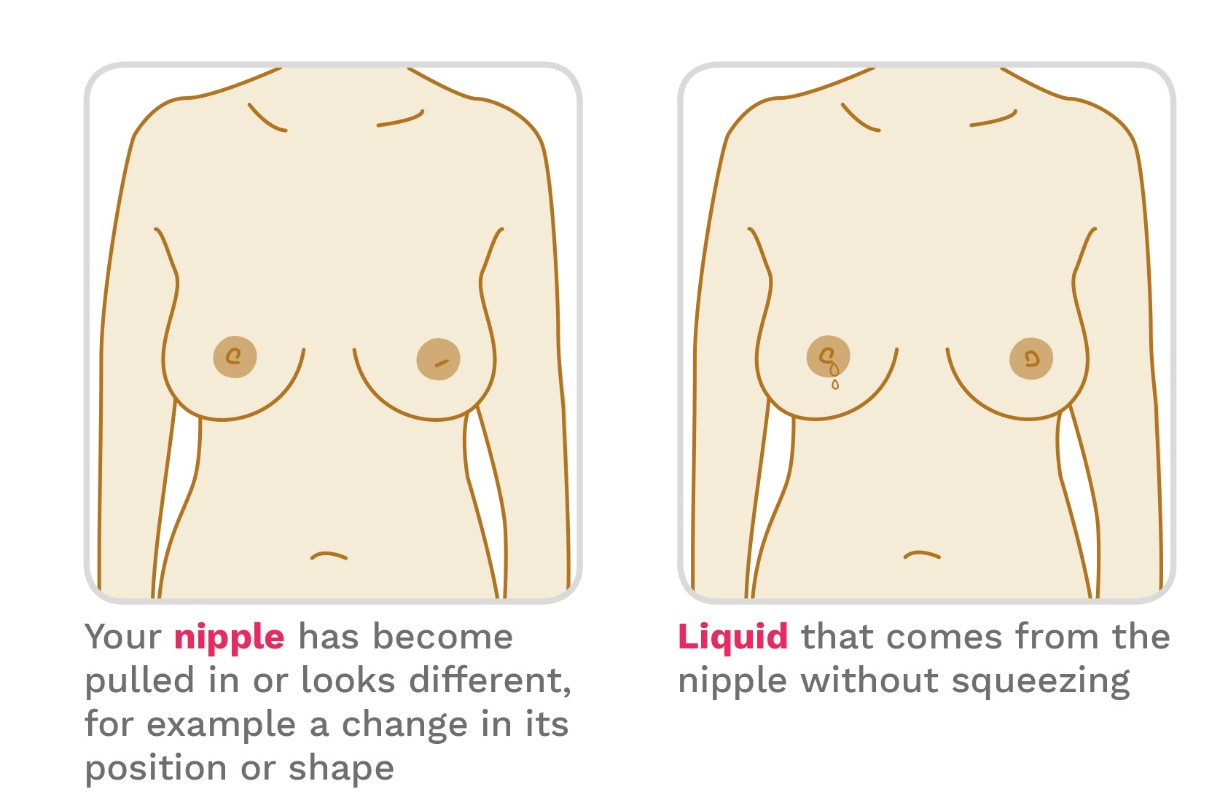
Look out for a change to the nipple, for example it has become pulled in (inverted), a rash or crusting around the nipple and any unusual liquid (discharge) from either nipple.
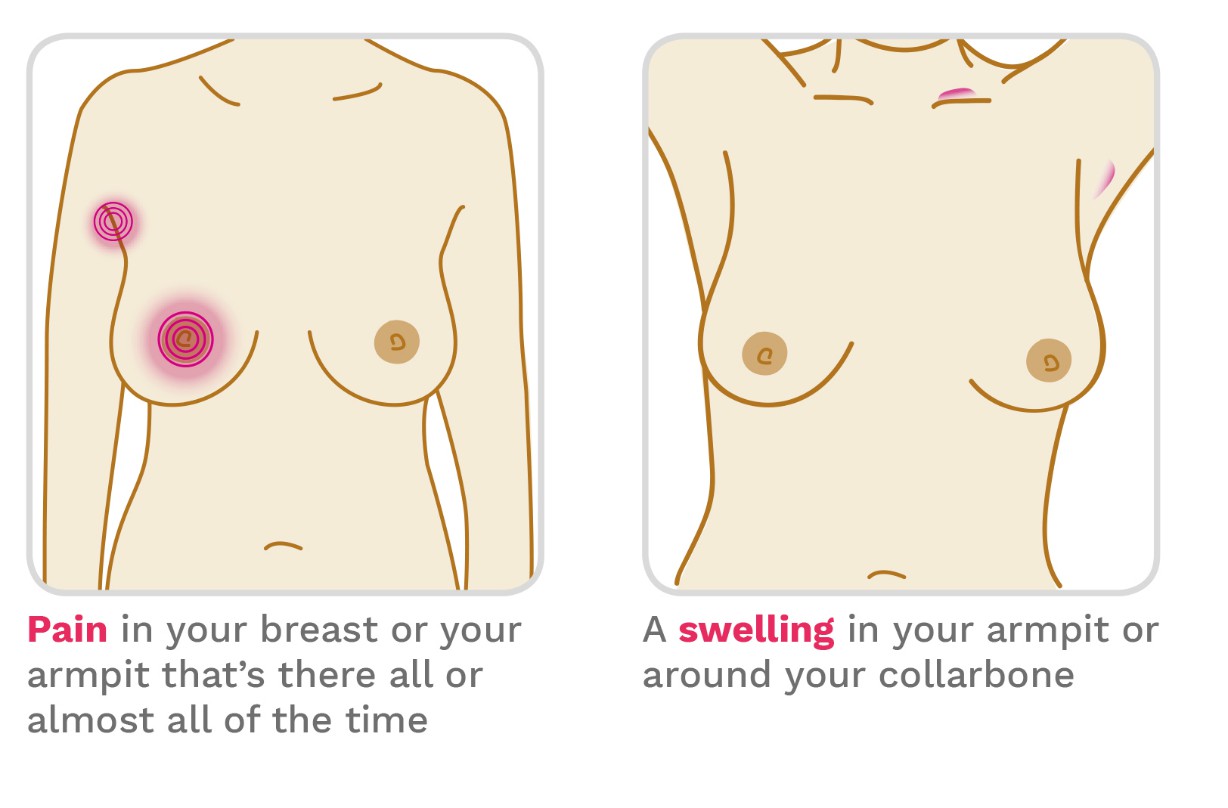
Breast Cancer Aware advises: 'Noticing an unusual change in your breasts doesn’t necessarily mean you have breast cancer. Most changes to your breasts are not because of cancer. But, it’s important to get checked by your GP.'
Want more info on how to check your breasts? Watch the video below for more detailed instructions
3. Another way to visualise the symptoms of breast cancer
https://www.facebook.com/photo.php?fbid=10154886141978894&set=a.118071123893.124938.577163893&type=3&theater
This photo from the Know Your Lemons campaign, created by the Worldwide Breast Cancer group, aims to help women visualise the unknown symptoms of breast cancer by comparing breasts to lemons.
From retracted nipples to dimpling, and an invisible lump which can feel similar to a lemon pip, there are so many telltale signs that you definitely need to be looking out for. The campaign is designed to be shared amongst family and friends to raise awareness. Who knows, it could potentially save lives, so get sharing!
4. Look and feel
Look and feel your breasts regularly. The more often you do, the more familiar you will get with what feels normal for you, and the quicker you will notice any breast changes.
Feeling your breasts doesn't have to be embarrassing or time-consuming. Make it a part of your everyday routine, check them in the bath or shower, when you use body lotion, or when you get dressed.
5. See your GP about breast changes
If you do notice anything unusual, see you GP straight away. Don't delay or put off going because you are scared of what they may find - most changes in your breasts won't turn out to be cancer - but if it is, then the quicker it is diagnosed, the better. You can always ask to see a female GP if you'd feel more comfortable.
According to Breast Cancer Aware, after examining your breasts, your GP may:
- feel that there’s no need for further investigation
- ask to see you again after a period
- refer you to a breast clinic
6. Go for a breast screening when invited
Breast screening can spot cancers when they are too small to be felt or noticed, and are currently offered to women aged 50 - 70. If you're invited to be screened, don't put it off. There's no need to be embarrassed, as all screening staff are women, and spotting something unusual early really could save your life.
On 18 October Breast Cancer Now is encouraging everyone to wear it pink and help make life-saving breast cancer research and life-changing support happen. Visit www.wearitpink.org to register and claim your free fundraising pack.
Anyone can take part in wear it pink. Some people will choose to hold a cake sale, while others will opt to organise a raffle and some will arrange a pink fancy dress day at their school or workplace. No matter how people choose to wear it pink, all the money raised will help to fund vital breast cancer research and support.
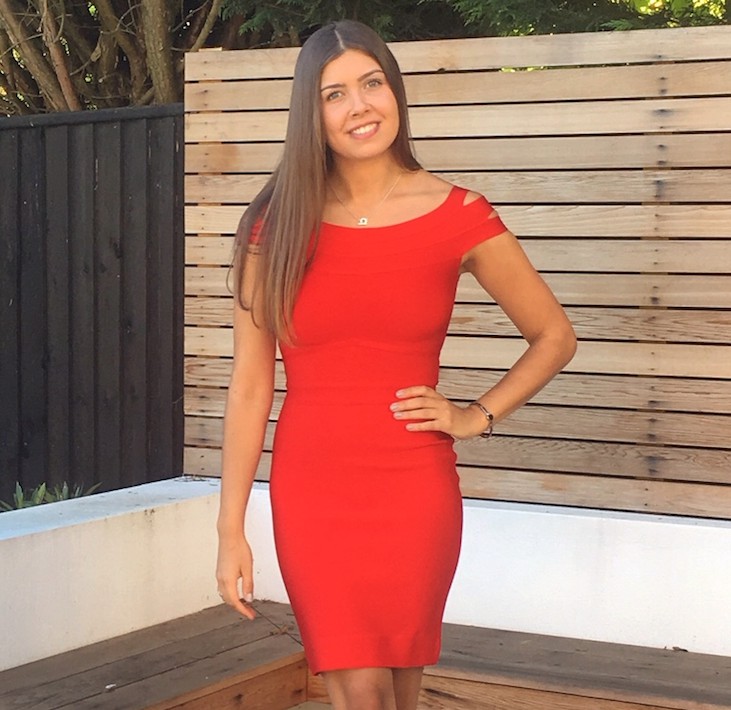
Sibelle Mehmet is a Junior Digital Writer at Goodto.com. She joined the team in April 2019 and was her first job since completing a MA in Magazine Journalism at City, the University of London in the summer of 2019. Sibelle previously interned at a number of national titles including OK!, Heat, Closer, Mother & Baby, and The Times Newspaper magazine. She's written extensively about the latest celebrity, showbiz, and royal news.